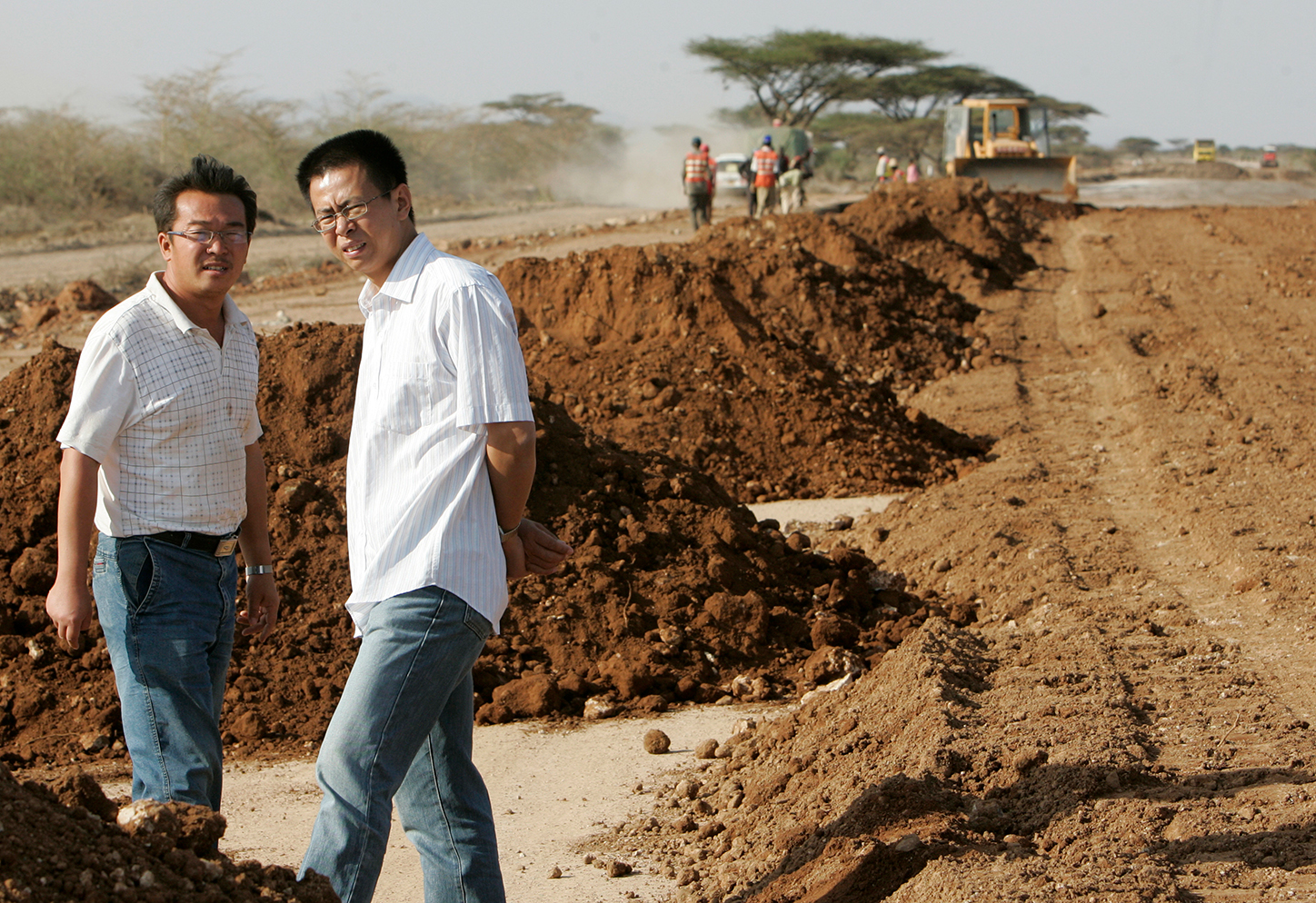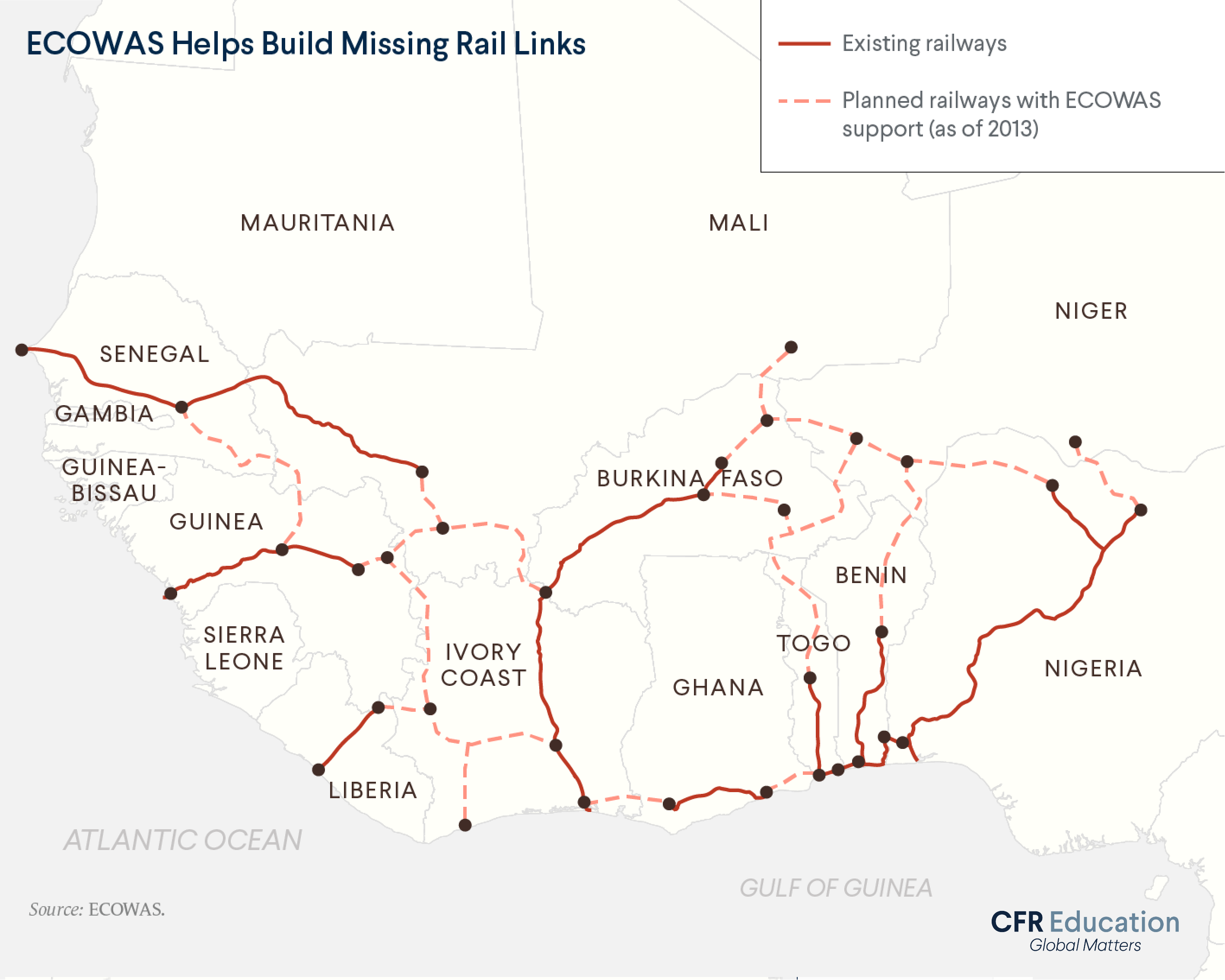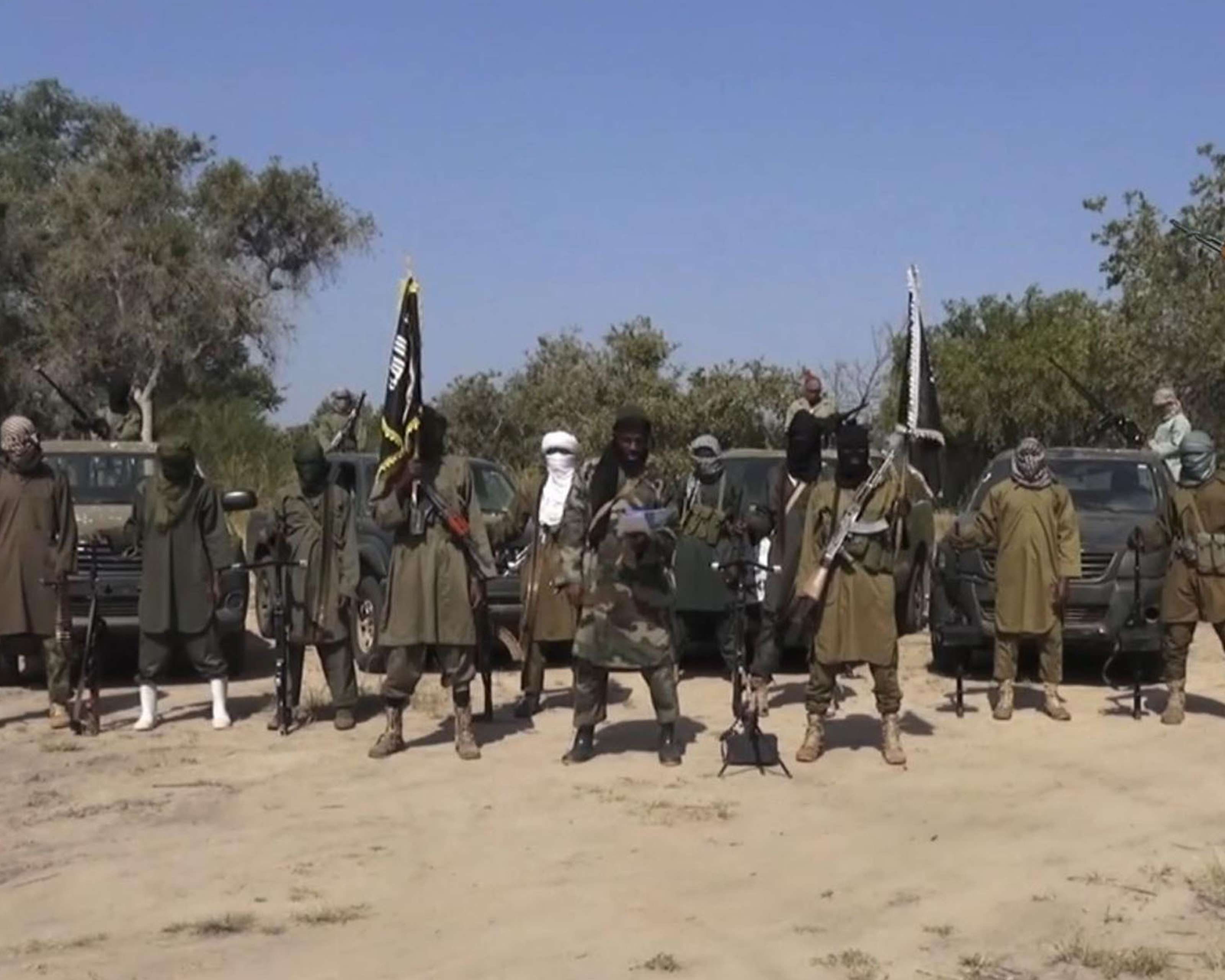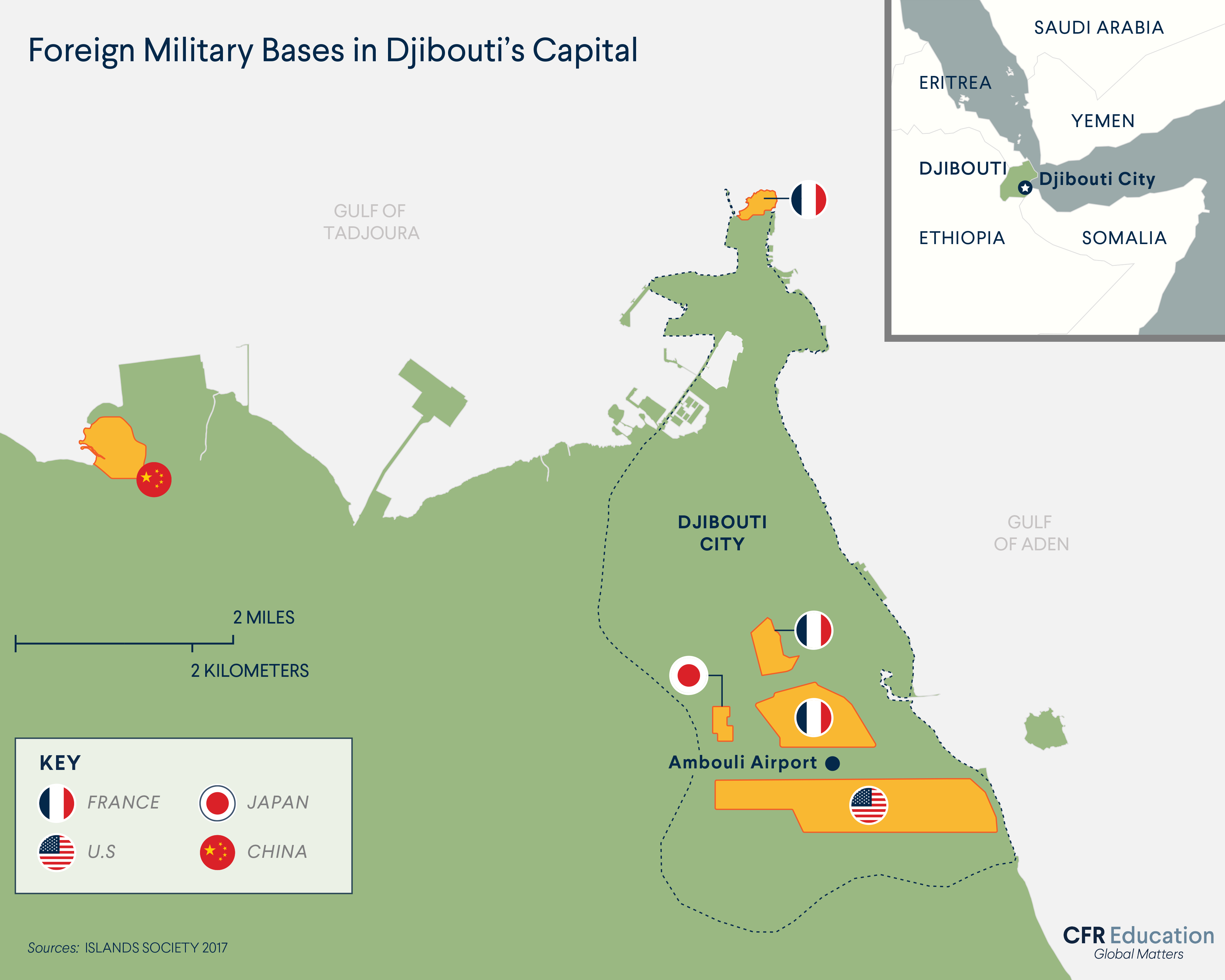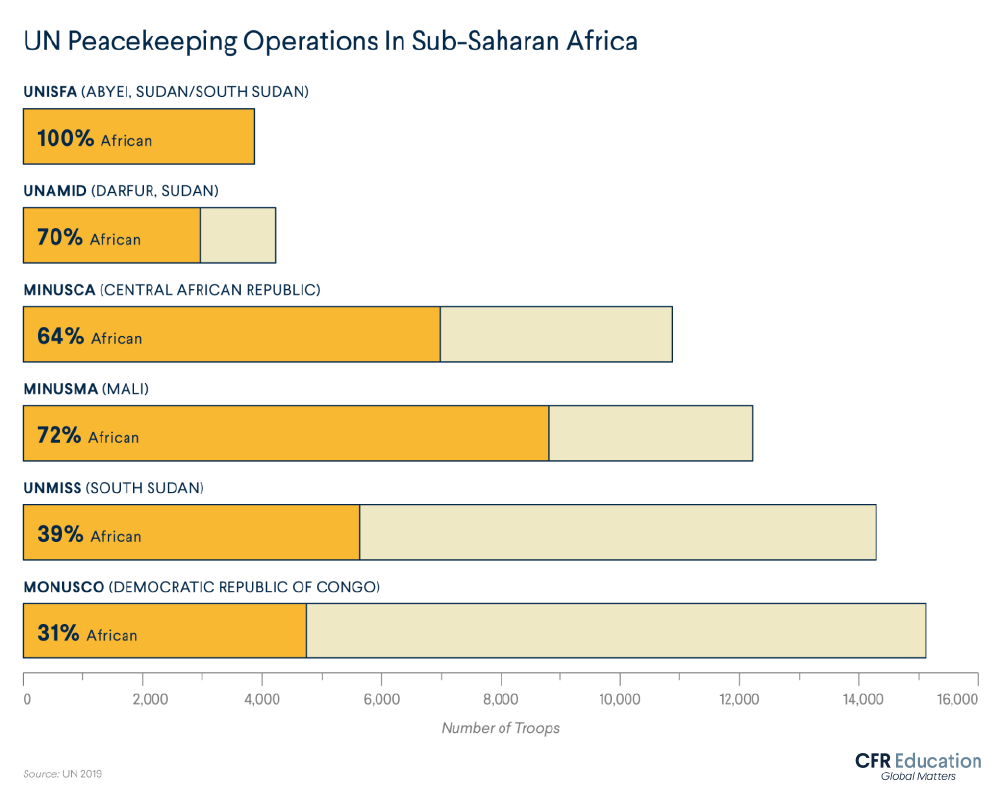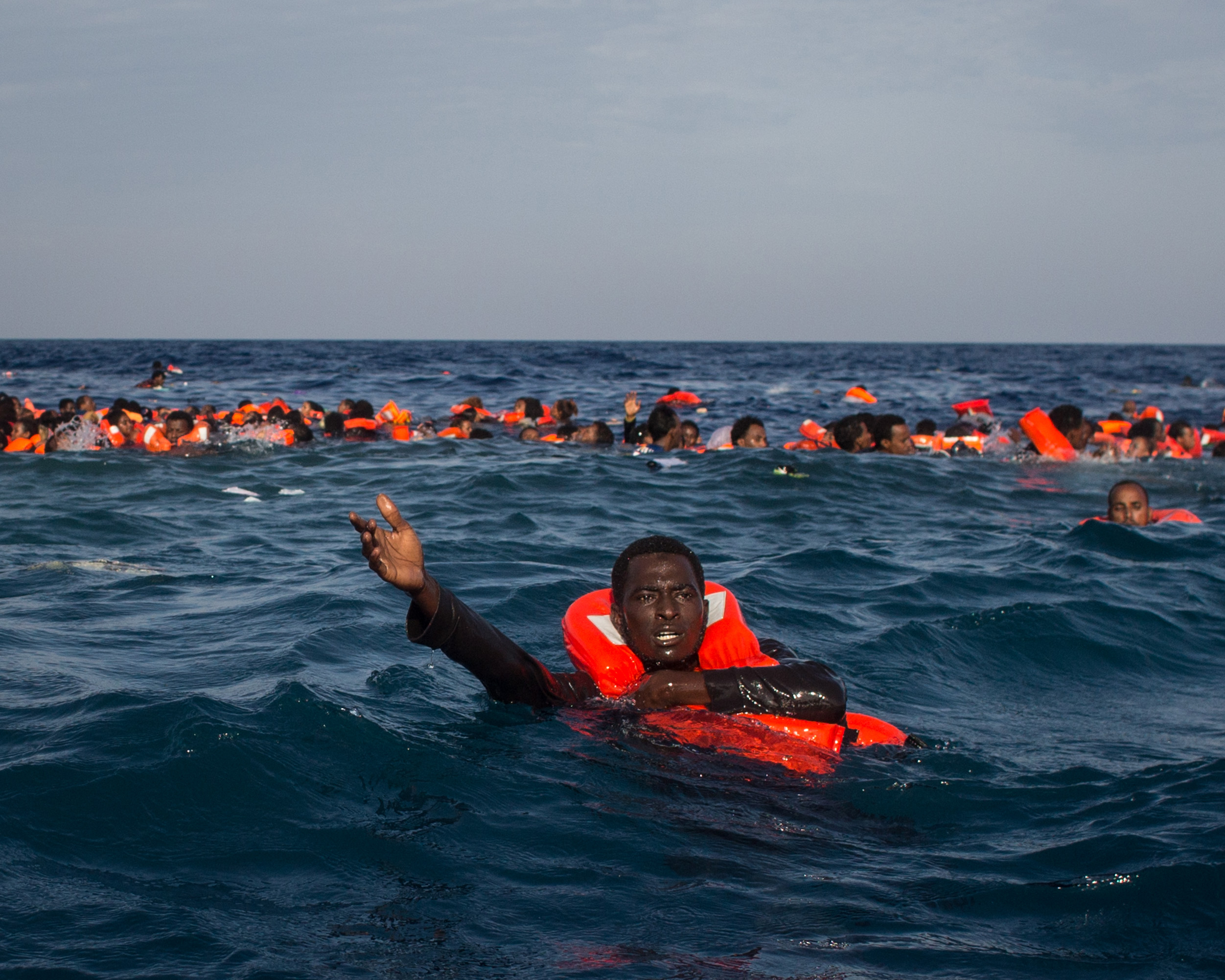Geopolitics: Sub-Saharan Africa
Sub-Saharan African countries hold roughly 25 percent of the seats in the UN General Assembly, making the region’s voice important on global issues such as climate change and drug trafficking.
Sub-Saharan African countries hold roughly 25 percent of the seats in the UN General Assembly, making the region’s voice important on global issues such as climate change and drug trafficking. What’s more, a large and rapidly growing population, vast natural resource reserves, and economic potential all position sub-Saharan Africa to play a greater future role in geopolitics. But the region faces serious challenges that temper many countries’ ability to project power today. Relatively low economic performance, civil wars, and climate change continue to force large numbers of people flee their homes as refugees and migrants. Whether sub-Saharan countries can cooperate to address these challenges through institutions such as the African Union will largely determine the region’s future.
African Union Provides Imperfect Forum for Regional Cooperation
Countries in sub-Saharan Africa are brought together by the African Union (AU), a regional organization that aims to reduce hunger and poverty, and boost development and trade. Every country in Africa is a member, making the AU an important forum for cooperation and diplomacy. Despite some successes, like human rights promotion and trade integration, the region continues to face widespread corruption and conflict, two areas of focus for the AU, which calls into question just how successful the AU is in achieving its aims.
Smaller Organizations Prove More Effective than AU
Smaller, regional organizations have a better track record of preventing conflict and encouraging cooperation in the region. The Economic Community of West African States (ECOWAS), which counts fifteen West African countries as its members, has linked major cities in the region with a road network, established the free movement of people and goods, and built a communication network. The organization has also played an important political role by using military, political, and economic pressure to influence local behavior, for example, by calling for an end to third termism.
Violent Extremism Rocks the Sahel
The arid Sahel region extends through fourteen countries in the north of sub-Saharan Africa. Since the early 2000s, violent extremist groups such as al Qaeda, the Islamic State, and their affiliated groups have significantly expanded their reach in the Sahel by exploiting the poverty and corruption on the ground. And in Nigeria, Boko Haram deepens this instability with kidnappings, bombings, and assassinations. To address these growing threats, the United Nations deploys more peacekeeping forces in sub-Saharan Africa than any other region. And both the United States and France have growing military operations trained on containing extremism in the Sahel.
Foreign Militaries Brush Shoulders in Djibouti
Located in the Horn of Africa, Djibouti is roughly the size of New Jersey. Yet it’s home to a growing collection of foreign militaries: U.S., French, German, Italian, Japanese, Saudi Arabian and Spanish forces have operations or are building bases in the tiny country. In 2017, China joined this list, building its first overseas military base not far from Camp Lemonnier, the country’s U.S. military base. So what is it about Djibouti? Its strategic location on the Red Sea also provides access to the Mediterranean Sea via the Suez Canal. And Djibouti is within striking distance of both North Africa and the Middle East. Foreign interest has paid dividends for Djibouti in the form of infrastructure projects and rent collected—the United States government, for example, pays $63 million a year to lease space for its military base.
United Nations Keeps the Peace in Central Africa
Ethnic tensions, political rivalries, religious extremism, natural resources, and government inability to maintain order all continue to fuel several conflicts in the region. To address these conflicts, the United Nations and the African Union have sent peacekeeping forces to protect civilians and conduct counterterror operations, with varying success. With over one hundred thousand peacekeeping personnel deployed, the region is home to the highest number of peacekeeping forces in the world, many composed of forces contributed by African countries. This means that most of the world’s peacekeeping forces are African, with Ethiopia as the top contributor.
China Bets Big on Africa
In 2009, China overtook the United States as sub-Saharan Africa’s biggest trading partner. As the largest energy consumer in the world, China is especially interested in the region’s oil reserves. In 2016, Angola ranked as China’s second-largest oil supplier, right behind Russia and just ahead of Saudi Arabia. Other trade has increased in lockstep. In dollar terms, trade between China and sub-Saharan Africa grew from $10 billion in 2000 to more than $220 billion in 2014. The Chinese also provide loans, investment, and aid to the region. In return, China gets the raw materials and resources to fuel its rapidly growing economy as well as advantageous trade deals with African countries. Some experts categorize the Chinese presence in Africa as predatory but others argued that Chinese projects produce jobs, wealth, and infrastructure for the region.
African Refugees Seek Asylum in Europe
Displaced by violent conflict and persecution or seeking economic opportunity, many refugees and migrants from Ghana, Nigeria, Senegal, Somalia, and elsewhere have fled the region altogether, seeking haven in European Union (EU) countries, Norway, and Switzerland. In fact, from 2015 through 2018, nearly one million Sub-Saharan Africans applied for asylum in Europe. The swell of refugees has had political and cultural effects in many recipient countries. European countries have taken various measures to deal with the influx of migrants. In 2017, the EU announced a $1.9 billion plan to “address the root causes of migration” and encouraged African countries to strengthen their borders, but many experts see this amount as too little to tackle the issue.
